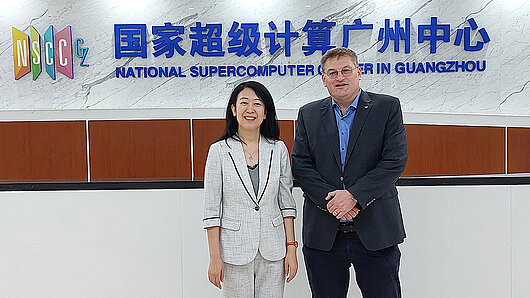High-Performance Computing Center Stuttgart

The agreement will enable collaboration in the areas of research and education, and will facilitate joint workshops, courses, and the exchange of faculty, staff, and PhD students to increase expertise in Stuttgart and Guangzhou. It also identifies scientific areas that will frame the cooperation. These include numerical algorithms using unstructured grids, emerging technologies in parallel programming and networking, and the immersive visualization of numerical simulations. The two centers will also explore how these approaches can support the development of applications for engineering and global systems science.
The NSCC-GZ is home to Tianhe-2A, one of the world’s fastest supercomputers, and supports technological research using high-performance computing, artificial intelligence, and big data analytics. The new memorandum of agreement continues the formal collaboration agreement between the two centers that was last renewed in 2019.
— Christopher Williams